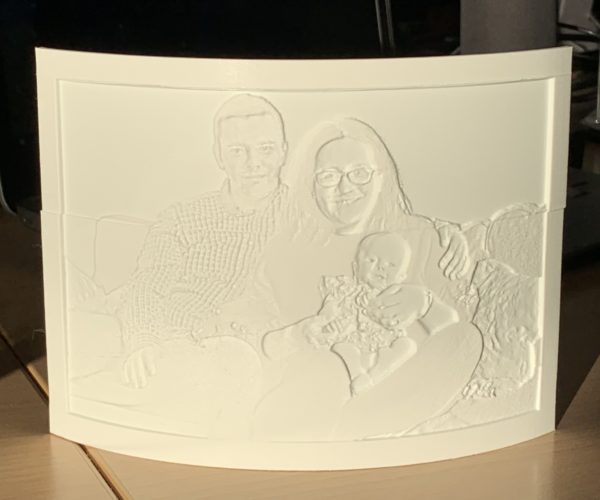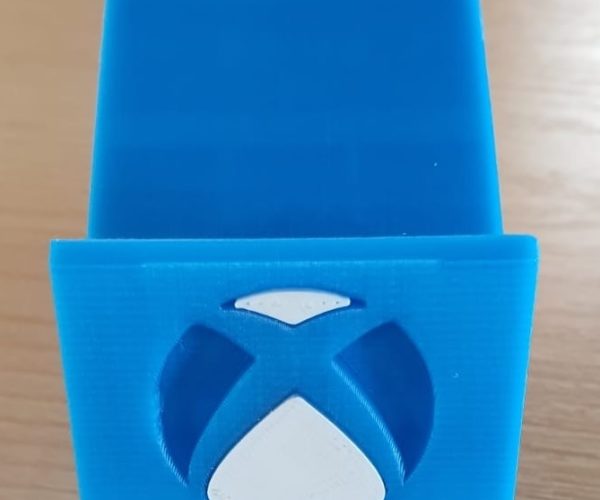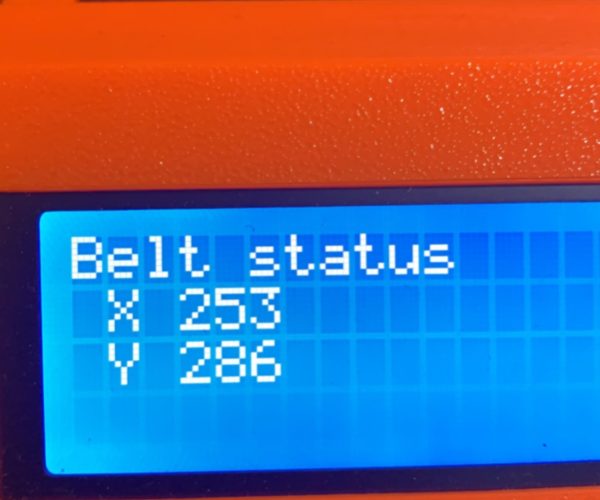Random layer shift
dears, I do have one problem with my printer, a MK3S with MMU2S unit.
since few days I have an issue with some layers shift randomly on three consecutive prints.
on the fist part the issue was more visible, consecutive layer shift on X axis (first photo);
on the second photo, the same part, a new G-code and the result is one layer shift, this time on the Y axis.
- before the second print I did wizard calibration, check the pulley, the belts tension, the screws on the motors on x and y axis, any movement of the extruder >>> everithing OK.
on 3rd photo the same issue again but on the X axis.
- before 3rd print i did a firmware reinstall on printer and MMU2S, reinstall of prusa slicer, clean, degrease and lube the bearings and the rods.
after above actions I printed out a perfect part (see picture 4)
any idea about what I should do further?
RE: Random layer shift
It looks like one or maybe both drive pulleys on the motor shafts are loose.
Check that the locking screws are tightened against the flat surface of the shaft.
Bear MK3 with Bondtech extruder
RE: Random layer shift
Possibly a lack of lubricant in your bearings, best to add some to each of the runners on all sides (not the z-axis screw thread!) make sure they are well bedded with lubricant and then run your print again (Y)
Hope this helps
Only two things are infinite, the universe and human stupidity, and I'm not sure about the former
RE: Random layer shift
@rhdreambox
Already checked. Everything ok there.
RE: Random layer shift
@lewis-denegri
Thanks Lewis. Just before the last print, the lithophane...I clean out the rods and bearings with alcohol and lube them again. First print was perfect(blue xbox controller) and the lithophane came out with a layer shift.
i do not know exactly what else to do.
RE: Random layer shift
Check the numbers for belt tension. They mean nothing about belt tension, but are useful for gauging axis friction. Anything at or below 250 is a symptom your bearings are not happy.
The MK3S extruder is known for crushing the X bearings when a user tightens the housing to remove all the gaps; and the U-bolts holding the Y bearings are prone to deforming the bearings. Too much is bad in these cases, looser is better. Backing off the U-bolt nuts and backing out the extruder screws holding the bearings also helps.
Also - a photo showing your printer in its environment has help diagnose issues. One case a user had forgotten to install the 3 mm nylon in his extruder harness and it was drooping and catching on the EINSY case and bed harness. Of course he had never thought that could be the problem and was chasing thermal issues... lol.
RE: Random layer shift
@tim-m30
on X axis I have 253 and 286 on Y. I hope you can see also the video I attached
sincerely on Y axis everything runs smooth. on the X axis everything is ok, except the last 15-20 mm travel on the right side of the axis. i already disassembled the extruder cover. the bearings looks fine, I will be more careful when I will assembly back the extruder cover.
thanks for the input.
RE: Random layer shift
on the X axis everything is ok, except the last 15-20 mm travel on the right side of the axis
Two things to check if the extreme rightmost travel is not smooth.
1. No portion of extruder comes into contact with upright frame.
2. Extruder cable umbilical isn't wrapped too tightly or clamped at EINSY box with torsional tension. This is difficult to test while belt is attached to x-carriage. Easiest way to correct is to remove the x-belt completely and check how the carriage moves. You will notice that the cables acts as a spring that pushes the x-carriage to a place somewhere towards center of travel range. I have found it is best to adjust the cable wrap and twist at EINSY clamp such that the natural resting point is about 75% of the way to the right. The right most portion of motion is maximal tension from the cable umbilical. If the natural rest point is too far left, the x-motor can sometimes miss steps during fast travels near rightmost x-carriage limit. After you have the cable properly adjusted, reattach the x-belt. BTW, having the x-belt off is ideal time to verify your bearings are nearly zero friction for the entire travel distance.




